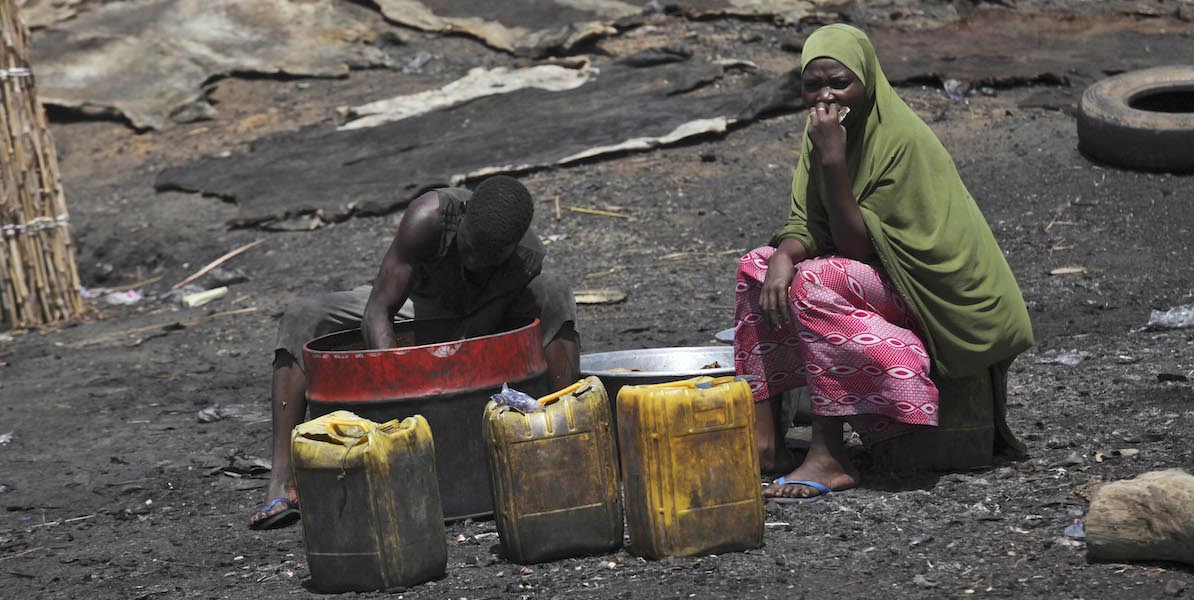Niger, where there was a coup d’état on July 26, is located in northwestern Africa and is part of the Sahel, an area that also includes Mali and Burkina Faso, with which Niger borders to the west, and Chad, with which it borders instead to the east. It is four times the size of Italy, landlocked, poor in resources and has been hit several times by terrorist attacks by Islamist groups. It is very unstable politically, also due to the colonial regime that France imposed until the beginning of the twentieth century and from which it has never actually left.
Niger is remote from the sea and the northern two-thirds of its territory is covered by desert. Precipitation is concentrated between June and September in the southern part of the territory which is also the most hospitable and which is crossed for about 500 kilometers to the west by the Niger River, from which the country takes its name. The rains decrease as you go north, towards the large central semi-desert plateau where the nomadic shepherds are dedicated to breeding, and disappear in the sandy expanses of the Sahara.
Niger is inhabited by different ethnic groups with different traditions. The Haussa and the Djerma Sonrai prevail, who are sedentary farmers, followed by other groups of nomadic and semi-nomadic breeders including the Tuaregs. The Tuaregs live in the Sahara, and in the history of the country they have also been the protagonists of major conflicts for the claim of administrative autonomy in the northern regions where they had settled.
Niger’s capital, Niamey, and the country’s major cities are located in the southern and southwestern regions and are home to about one-fifth of the total population. The rest live in villages, many of which have only a few hundred inhabitants, and then in tents or huts.
Tuareg community festival in Iferouane, Niger, February 17, 2018 (AP Photo/Ludivine Laniepce)
Several languages are spoken in the country, in addition to French which is the official language. As for religion, Islam prevails and the currency is the Cfa franc, a colonial currency in the past linked to the French franc and created by General Charles de Gaulle in 1945.
Niger is one of those countries that has always occupied the very last positions in international rankings on development and quality of life: life expectancy at birth is low (62 years, those of Italy are on average 82 years) and it is low literacy rate. On the other hand, the rate of child labor is high. Most of the population lives in poverty and not even 20 percent of the people, second World Bank data, has access to electricity. Alongside high infant mortality, the fertility rate means that more than half of Niger’s inhabitants are under the age of 20.
– Read also: The response to the coup in Niger comes from Nigeria
Demographics are a significant issue for Niger: the population has increased from 3.4 million in 1960 to 23 million today. And forecasts for 2040 say it will rise to 45 million. In the country, spending on security exceeds that of education and health care thus setting it in motion a negative spiral that could lead to social deterioration and a probable increase in internal conflicts.
The economy of Niger is essentially based on pastoralism and agriculture, which however is practicable only in a small part of the territory. Alongside these activities there is the mining industry linked in particular to the extraction and export of uranium. However, the sector is disadvantaged by the lack of access to the sea, high costs and communication difficulties (the country has no railways, only a quarter of the road network is paved and passable in all seasons).
Niger’s trade balance is chronically passive, as what comes from exports of uranium and other minerals does not balance the huge imports. The main commercial partners of Niger are Nigeria and France, of which Niger is a former colony and to which it is still linked by various economic agreements: the extraction of uranium, a fundamental resource for the operation of nuclear power plants, is managed for example for over forty years by the French group Orano (formerly Areva) which is 90 percent owned by France.
In 2022, France imported 7,131 tons of uranium from five different countries: most from Kazakhstan (37.3 percent) and Niger (20.2 percent)
Niger gained independence from France in 1960. In the following decades its history was marked by numerous political crises, rebellions and coups. The first dates back to 1974 and the last to 2023.
The precariousness of the institutions has been compounded over time by the attacks of numerous jihadist groups active for years in the entire Sahel area, which in 2013 justified the start of the French mission known as “Operation Barkhane”, initially based in Mali and then in Niger. Niger is linked to France not only by commercial contracts, but also by a series of military agreements concluded between 1977 and 2020 which the military junta now in power has asked to interrupt.
– Read also: France’s frustrated ambitions in West Africa
Niger is one of the main transit states for migratory flows towards the Mediterranean Sea, for two main reasons. First of all, it belongs to the free movement area of ECOWAS (Economic Community of West African States), which allows migrants from member states to move around without difficulty. Furthermore, the greater instability of other routes connecting West Africa to Libya (the one that passes through northern Mali, and the eastern one, which passes through Sudan) has made Niger a good alternative.
However, the smuggling activities of migrants developed by local communities also as a response to structural unemployment were put into crisis by a law approved in 2015 which strengthened controls and sanctions, causing a simultaneous increase in violence and a sense of frustration against of the authorities.
